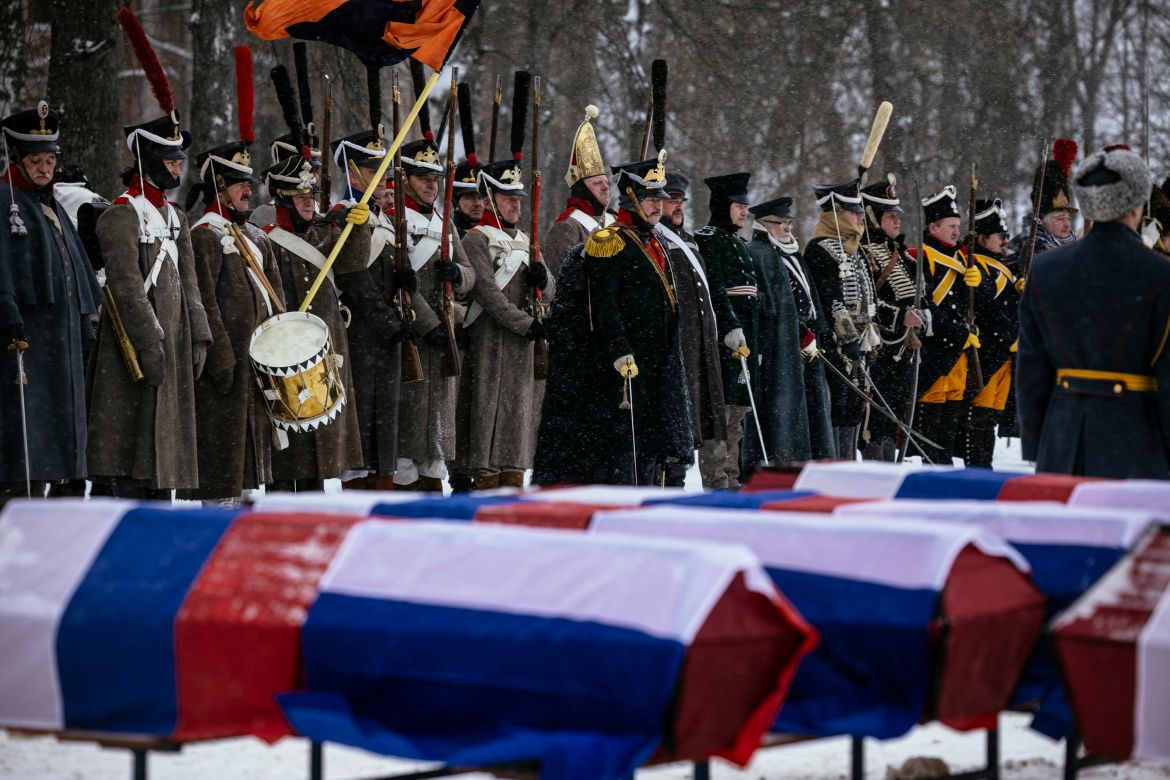In Pictures
In Pictures: Russia and France bury their dead 200 years later
Officials gathered to re-bury the remains of 126 people who died during Napoleon’s 1812 retreat.

The remains of French and Russian soldiers who died during Napoleon’s retreat from Moscow in 1812 were laid to rest with military honours in a rare moment of unity between the two countries.
Officials gathered with descendants of 19th-century Russian and French military leaders at a windswept ceremony on Saturday in the western Russian town of Vyazma to rebury the remains of 126 people killed in one of the bloodiest battles of Napoleon’s Russian campaign.
The snow fell and a military band played in temperatures of minus 15 degrees Celsius (five degrees Fahrenheit) as uniformed pall-bearers carried eight flag-draped caskets at a cemetery in Vyazma, a town more than 200 kilometres (120 miles) west of Moscow.
The remains were discovered in a mass grave by French and Russian archaeologists in 2019.
The caskets containing the remains of 120 soldiers, three women and three teenagers were later put into the snow-covered ground to the sounds of a gun salute.
‘Death and time’
The earth had frozen and the coffins were left in the ground covered temporarily by a white canvas.
“As generations pass, death and time reconcile everyone,” Yulia Khitrovo, a descendant of Russian field marshal Mikhail Kutuzov, considered a national hero for repelling Napoleon, said at the ceremony.
The interment – in which dozens of re-enactors in period uniforms took part – took place as France marks the bicentenary of Napoleon’s death this year.
Prince Joachim Murat, a descendant of one of Napoleon’s most celebrated marshals, saluted the fallen soldiers of Russia’s army and Napoleon’s Grande Armee.
“Two hundred years ago, French and Russian soldiers clashed during very fierce battles in this region. The courage of the French and Russian soldiers was such that they continued to fight despite appalling weather conditions,” said Murat.
He expressed hope their deaths would serve as a reminder to the current generations of the “price of peace and brotherhood”.
The ceremony marked a rare moment of unity between Russia and Europe at a time of heightened tensions over a litany of issues, including the Kremlin’s increasingly harsh crackdown on the opposition.








